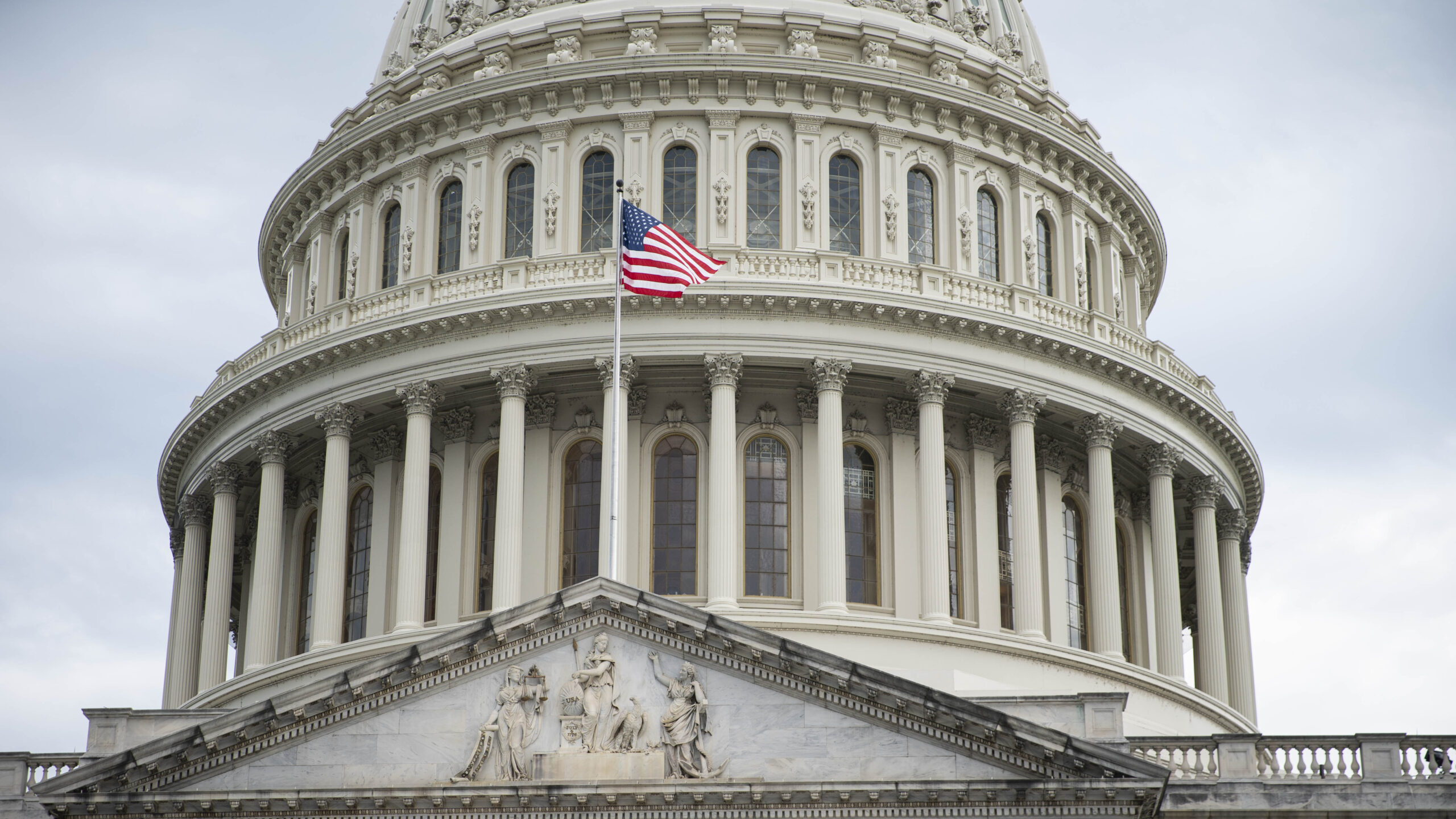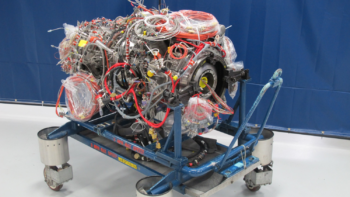
Lawmakers are pressuring TransDigm officials to refund the Pentagon almost $21 million. (Sarah Silbiger/Getty Images)
WASHINGTON: During a Congressional hearing today, executives at aircraft spare parts manufacturer TransDigm were noncommittal about repaying nearly $21 million the Pentagon inspector general has dubbed “excess profit,” arguing instead that the company had actually given the department discounted rates.
The executives’ evasive response came as lawmakers on the House Committee on Oversight and Reform called on the company to refund the money, which the IG says TransDigm made on 105 spare parts across 150 contracts.
“Our message to TransDigm today is simple: pay back the money,” said Rep. Carolyn Maloney, D-NY, the chair of the House Committee on Oversight and Reform.
The company has come under scrutiny in recent years after it voluntarily repaid more than $16 million in excess profit on sole-source contracts highlighted in a 2019 inspector general report, though executives at the time maintained that it was not an admission of guilt. Asked by committee members whether they would repay this second pot of money back, TransDigm officials were evasive.
“It’s not a yes or no answer,” said Kevin Stein, CEO of TransDigm. He added at the hearing, that “if we find that TransDigm made a mistake in any of our contracting, then we will pay money back.”
Stein and executive chairman and former CEO Nicholas Howley both argued that the inspector general report’s metrics for what constituted “excessive profits” was arbitrary, and added that the company had sold the Pentagon parts at a 25 percent discount over commercial prices across the contracts the IG audited.
According to the inspector general report, Transdigm officials said that aerospace industry contractors use market-based pricing that result in profits from eight to 22 percent. The IG report considered “reasonable” profit to be 15 percent or less, and found that TransDigm made excessive profits ranging from 2.8 percent to 3,850.6 percent.
John Tenaglia, the Pentagon’s principal director of defense pricing and contracting, said the Defense Logistics Agency has notified TransDigm that they intend to request a refund, but a refund has not been received.
TransDigm makes spare parts for several military aircraft such as the C-17, F-16 and AH-64 Apache helicopter.
The hearing raised broader questions about reforming the federal acquisition regulations governing sole-source contracts, which allows industry to avoid providing Pentagon contracting officers with pricing data for contracts under $2 million — the kind of contract that makes up the bulk of TransDigm’s defense deals. That data allows contracting officers to determine “determine fair and reasonable prices” for sole-source contracts. The IG report found that contracting officers at the Defense Logistics Agency were denied access to uncertified cost data from TransDigm on 24 spare parts across 25 contracts.
“This is perfectly legal, when they [contracting officers] asked you [the contractor] that question, you are under no obligation to answer,” said Rep. Jamie Raskin, D-Md. “So the question is really … do we need to change that rule for contracts under $2 million? Because it looks like a gaping loophole where the contracting officers can try to determine what the cost is that contractors have no reason to comply with that. They don’t [comply]. And of course, the taxpayers get ripped off because of it.”
To combat this, Maloney said she was releasing a draft bill that would “require companies to provide cost information when necessary to determine if proposed prices are unfair and unreasonable.”
Deputy Inspector General Theresa Hull said that unless the Congress took action to prevent this in the future, the department would continue to pay unfair prices.
“Without legislative changes, the DoD will continue to be unable to perform adequate price reasonableness determinations,” she said.
Pass a preemptive CR, deal with inflation and watch the debt limit: 3 tasks for Congress
John Ferrari and Elaine McCusker of AEI argue in this op-ed that Congress needs to act quickly to ensure American national security before getting bogged down in election season.


























